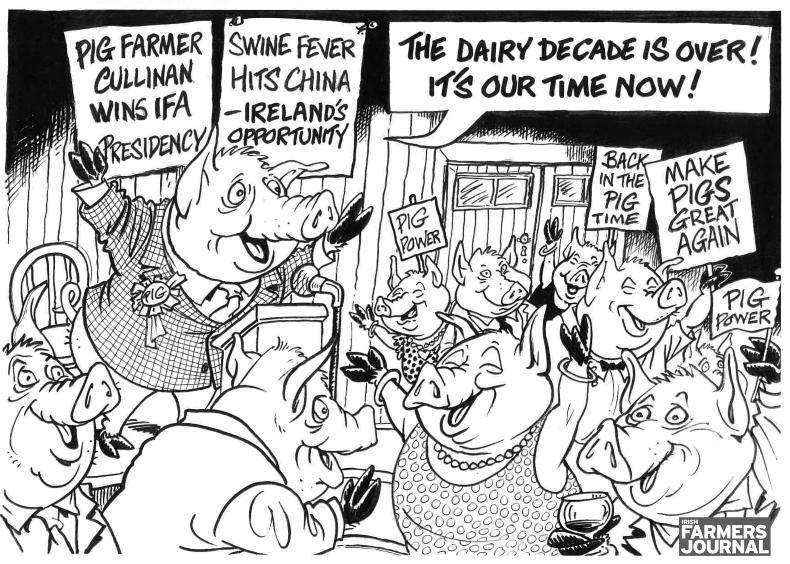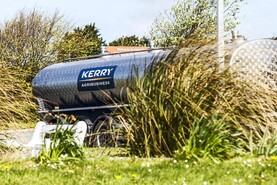Whether we like it or not, Brexit is going to once again dominate the political agenda in 2020. With the UK set to leave the EU at the end of January, we move into the transition phase, which will run until the end of the year.
During this period, EU and UK negotiators will seek to agree a new free-trade agreement. Most saw the timeline as extremely ambitious but the fact that there was scope to extend the transition period for a further two years allayed fears. However, that safety net has been removed after Boris Johnson introduced legislation which effectively prohibits him from extending any transition period beyond the end of the year. It is another high-risk move aimed at intensifying pressure on the EU to row back on some red-line issues in order to get a quick deal.
It of course builds on the strategy adopted by Johnson when negotiating with the EU on securing changes to Theresa May’s withdrawal agreement.
Some argue that it worked once and will work again. However, the argument also ignores the fact that tweaking a withdrawal agreement is very different to the complexity of agreeing a far-reaching and long-lasting free-trade deal that secures deep market access – hence why, in the normal course of events, trade negotiations often stretch over a decade.
Cliff edge
Some have interpreted the move to limit the transition period as an indication that the Johnson administration is going for a soft Brexit, with the plan to simply transpose EU regulations into UK law.
However, if the ambition was a soft Brexit that would deliver minimal regulatory divergence, the instinct would be to instead push for a prolonged transition period rather than creating a cliff edge at the end of the year.
It is the creation of this cliff edge that firmly puts a no-deal Brexit back on the agenda.
With a huge pro-Brexit parliamentary majority, few would bet against the Johnson administration leading the UK over the edge.
It is worth reminding ourselves as to the consequences for Irish agriculture. A WTO tariff scenario would effectively see an export tax of €1.7bn on agricultural produce moving into the UK. There is of course the possibility that a tariff-free regime would be adopted. But the financial impact on Irish agriculture is equally as severe, as Irish beef would find itself sandwiched in the market between British and Brazil.
Complications for NI
Meanwhile, the pro-Brexit landscape is looking equally as bleak in Northern Ireland.
The narrative that the province would have the best of both worlds under the withdrawal agreement is falling apart as Northern Ireland’s industry realises the impact of a border in the Irish Sea.
Under current proposals, businesses that traditionally imported product from Britain into Northern Ireland for processing for it to be sent back into Britain will face both the complication of tariff charges and rebates along with customs checks.
At this point, the only certainty around Brexit is that we are in for a roller-coaster ride over the next 12 months.
Unfortunately, farmers have no choice but to get on board and hope that wherever the ride stops, the EU, Irish and British governments will stand ready with the necessary market supports to ensure incomes are protected.
2019 –the
year the splinters splinted

Farmers on St Stephen's Green the week before Christmas. \ Philip Doyle
The year 2019 will be remembered for farmer protests and the subsequent splintering of farm organisations.
Such has been the level of splintering within the splinter groups that when a small number of farmers descended on the streets of Dublin in mid-December, most struggled to actually identify which group was leading the campaign.
As we look ahead to 2020 and the policy challenges that are coming down the tracks, it is critical that farmer representation is not driven by populism where the objective is to undermine rather than deliver.
Delivery
Ultimately, delivery is the only benchmark against which any farm organisation or grouping should be measured.
Standing on the streets shouting about the problem is the easy part – forcing through solutions takes much more skill.
The challenge in 2020 is how we bring all the organisations/groups together to ensure farmers speak with one voice on the critical issues.
The first step is to ensure every group around the table has a clear mandate and a proper membership and governance structure.
Cross-industry group
Secondly, consideration should be given to the establishment of a cross-industry group that can operate in a similar way to the Irish Congress of Trade Unions (ICTU) – their mandate being to lobby the Irish Government and Brussels on the key issues affecting the overall sector.
Of course, the formation of such a group would not prevent individual organisations lobbying on issues specific to their membership.
As we head into what could be one of the most divisive reforms of the CAP ever to take place, consideration as to how we can keep farmers united should be top of the agenda in the months ahead.
You can read our interview with Minister for Agriculture Michael Creed from this week's edition here.
Put your health on the top of the agenda in 2020
Towards the end of 2019, the Irish Farmers Journal ran free health checks for farmers as part of our autumn series of mart meetings.
It was striking that for many, it was the first time they had a health checkup in recent years.
Unfortunately, personal health is an issue that most farmers put well down their agenda, with the day-to-day demands of running the business taking priority.
It is an area that requires much more attention but for this to happen, farmers need to realise that they are the most important cog in the wheel and therefore need to take their health seriously.
When making the plan for 2020, a health check should be top of the agenda.
Meanwhile, from all the team in the Irish Farmers Journal, may we wish you a happy and safe 2020.
Policy
positions on real issues please
Although the date for the next general election has yet to be fixed, political positioning is well under way.
On page three we report that the Fianna Fáil policy in the upcoming general election will support the abolition of farmer levies to Bord Bia.
Hopefully the move does not signal the approach that political parties are going to take when outlining their vision and support for the agricultural sector.
Instead of political manifestos containing popular sound bites, similar to the Fianna Fáil announcement, farmers need each party to present a coherent plan as to how they will tackle the real challenges facing the sector in the years ahead – ranging from farm incomes, CAP reform, Brexit and environmental policies.
All require real thought and will have a much bigger impact on the future viability of the sector than a headline-grabbing policy on a levy that is costing the average farmer less than €50 per annum.
We look forward to reading the Fianna Fáil policy on the real issues facing farmers.
Whether we like it or not, Brexit is going to once again dominate the political agenda in 2020. With the UK set to leave the EU at the end of January, we move into the transition phase, which will run until the end of the year.
During this period, EU and UK negotiators will seek to agree a new free-trade agreement. Most saw the timeline as extremely ambitious but the fact that there was scope to extend the transition period for a further two years allayed fears. However, that safety net has been removed after Boris Johnson introduced legislation which effectively prohibits him from extending any transition period beyond the end of the year. It is another high-risk move aimed at intensifying pressure on the EU to row back on some red-line issues in order to get a quick deal.
It of course builds on the strategy adopted by Johnson when negotiating with the EU on securing changes to Theresa May’s withdrawal agreement.
Some argue that it worked once and will work again. However, the argument also ignores the fact that tweaking a withdrawal agreement is very different to the complexity of agreeing a far-reaching and long-lasting free-trade deal that secures deep market access – hence why, in the normal course of events, trade negotiations often stretch over a decade.
Cliff edge
Some have interpreted the move to limit the transition period as an indication that the Johnson administration is going for a soft Brexit, with the plan to simply transpose EU regulations into UK law.
However, if the ambition was a soft Brexit that would deliver minimal regulatory divergence, the instinct would be to instead push for a prolonged transition period rather than creating a cliff edge at the end of the year.
It is the creation of this cliff edge that firmly puts a no-deal Brexit back on the agenda.
With a huge pro-Brexit parliamentary majority, few would bet against the Johnson administration leading the UK over the edge.
It is worth reminding ourselves as to the consequences for Irish agriculture. A WTO tariff scenario would effectively see an export tax of €1.7bn on agricultural produce moving into the UK. There is of course the possibility that a tariff-free regime would be adopted. But the financial impact on Irish agriculture is equally as severe, as Irish beef would find itself sandwiched in the market between British and Brazil.
Complications for NI
Meanwhile, the pro-Brexit landscape is looking equally as bleak in Northern Ireland.
The narrative that the province would have the best of both worlds under the withdrawal agreement is falling apart as Northern Ireland’s industry realises the impact of a border in the Irish Sea.
Under current proposals, businesses that traditionally imported product from Britain into Northern Ireland for processing for it to be sent back into Britain will face both the complication of tariff charges and rebates along with customs checks.
At this point, the only certainty around Brexit is that we are in for a roller-coaster ride over the next 12 months.
Unfortunately, farmers have no choice but to get on board and hope that wherever the ride stops, the EU, Irish and British governments will stand ready with the necessary market supports to ensure incomes are protected.
2019 –the
year the splinters splinted

Farmers on St Stephen's Green the week before Christmas. \ Philip Doyle
The year 2019 will be remembered for farmer protests and the subsequent splintering of farm organisations.
Such has been the level of splintering within the splinter groups that when a small number of farmers descended on the streets of Dublin in mid-December, most struggled to actually identify which group was leading the campaign.
As we look ahead to 2020 and the policy challenges that are coming down the tracks, it is critical that farmer representation is not driven by populism where the objective is to undermine rather than deliver.
Delivery
Ultimately, delivery is the only benchmark against which any farm organisation or grouping should be measured.
Standing on the streets shouting about the problem is the easy part – forcing through solutions takes much more skill.
The challenge in 2020 is how we bring all the organisations/groups together to ensure farmers speak with one voice on the critical issues.
The first step is to ensure every group around the table has a clear mandate and a proper membership and governance structure.
Cross-industry group
Secondly, consideration should be given to the establishment of a cross-industry group that can operate in a similar way to the Irish Congress of Trade Unions (ICTU) – their mandate being to lobby the Irish Government and Brussels on the key issues affecting the overall sector.
Of course, the formation of such a group would not prevent individual organisations lobbying on issues specific to their membership.
As we head into what could be one of the most divisive reforms of the CAP ever to take place, consideration as to how we can keep farmers united should be top of the agenda in the months ahead.
You can read our interview with Minister for Agriculture Michael Creed from this week's edition here.
Put your health on the top of the agenda in 2020
Towards the end of 2019, the Irish Farmers Journal ran free health checks for farmers as part of our autumn series of mart meetings.
It was striking that for many, it was the first time they had a health checkup in recent years.
Unfortunately, personal health is an issue that most farmers put well down their agenda, with the day-to-day demands of running the business taking priority.
It is an area that requires much more attention but for this to happen, farmers need to realise that they are the most important cog in the wheel and therefore need to take their health seriously.
When making the plan for 2020, a health check should be top of the agenda.
Meanwhile, from all the team in the Irish Farmers Journal, may we wish you a happy and safe 2020.
Policy
positions on real issues please
Although the date for the next general election has yet to be fixed, political positioning is well under way.
On page three we report that the Fianna Fáil policy in the upcoming general election will support the abolition of farmer levies to Bord Bia.
Hopefully the move does not signal the approach that political parties are going to take when outlining their vision and support for the agricultural sector.
Instead of political manifestos containing popular sound bites, similar to the Fianna Fáil announcement, farmers need each party to present a coherent plan as to how they will tackle the real challenges facing the sector in the years ahead – ranging from farm incomes, CAP reform, Brexit and environmental policies.
All require real thought and will have a much bigger impact on the future viability of the sector than a headline-grabbing policy on a levy that is costing the average farmer less than €50 per annum.
We look forward to reading the Fianna Fáil policy on the real issues facing farmers.







 This is a subscriber-only article
This is a subscriber-only article









SHARING OPTIONS: